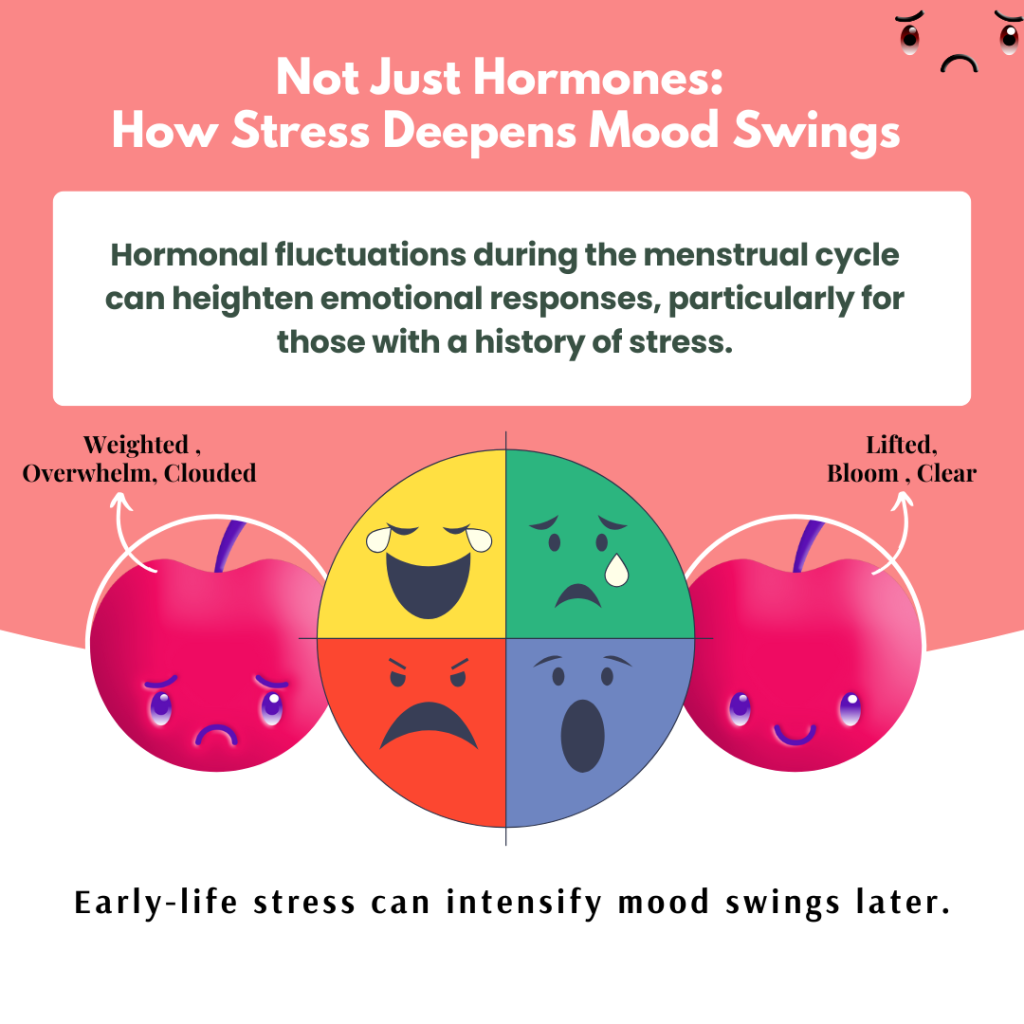
How Stress Affects Mood Changes During the Menstrual Cycle
Recent research is shedding new light on how stress can influence emotional changes during the menstrual cycle. While many individuals experience mood swings or heightened emotions during their cycle, this new study shows that past stress exposure may amplify these effects, especially in those at risk of mental health challenges.
In a study published in Psychological Medicine, researchers examined 114 women with a history of suicidal ideation. The participants provided daily ratings of their mood and thoughts over 1–3 menstrual cycles, totalling over 6,000 data points. They also completed the Stress and Adversity Inventory (STRAIN), which measures lifetime exposure to stressors, such as interpersonal loss and physical danger.

Key Findings:
-
- Greater Stress, Stronger Mood Swings:
Women who experienced more stress throughout their lives reported larger mood swings during the perimenstrual phase (the period surrounding menstruation), including increased feelings of sadness, irritability, and suicidal thoughts.
-
- Pre-Menarche Stressors Are More Impactful:
Stressful events that occurred before the onset of menstruation had a stronger influence on emotional shifts compared to those experienced later in life.
-
- Interpersonal Loss and Conflict:
Stress from interpersonal loss (e.g., death of a loved one) led to more pronounced mood swings, including anger, rejection sensitivity, and conflict with others.
What Does This Mean for You?
The study suggests that hormonal fluctuations during the menstrual cycle can heighten emotional responses, particularly for those with a history of stress. Understanding this connection can help individuals manage their mood more effectively during sensitive phases of their cycle.
These findings show that it’s not just hormones causing mood swings—stress plays a significant role, too. This is especially true for those with conditions like premenstrual dysphoric disorder (PMDD) or anyone with a history of mental health struggles.
Coping Strategies:
-
- Track Your Cycle and Mood
Keep a journal to identify emotional patterns. This helps you prepare for more sensitive times and plan self-care. - Practice Mindfulness
Techniques like meditation, deep breathing, or yoga can reduce stress and help you stay calm during hormonal changes. - Reach Out for Support
If you feel overwhelmed or have suicidal thoughts, talk to a therapist or join a support group for guidance. - Take Care of Your Body
A healthy diet, regular exercise, and enough sleep can boost your mood and help manage emotional shifts. - Set Boundaries
Avoid triggers like conflict or information overload. Prioritize self-care and limit stressors to stay in control during tough times.
- Track Your Cycle and Mood
Final Thoughts
By understanding the impact of stress on the menstrual cycle, we can take proactive steps toward better mental health. How you feel during your menstrual cycle isn’t just about hormones—stress plays a big part, too, but the right coping strategies and support can help. Learning to manage stress and understanding your cycle can lead to better mental health and well-being.



